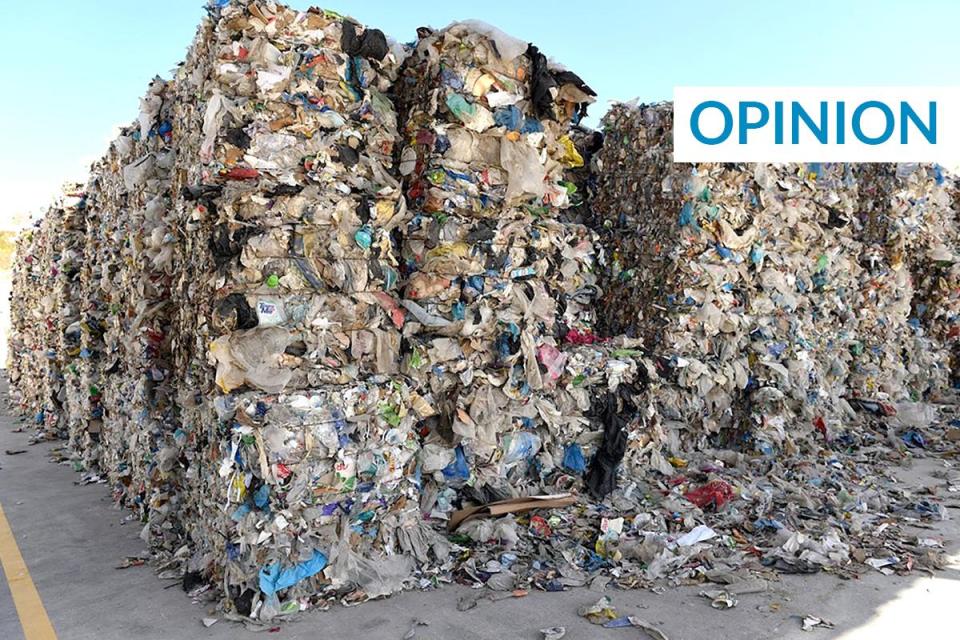Towards a cleaner Malta
It is our responsibility to sort our waste and dispose of it properly

Recently in Żabbar, as I was stepping out to run an errand, I found myself amid our community’s recycling bag collection day. It was a routine scene, emblematic of our collective efforts to manage waste responsibly. However, as I walked down the street, something caught my attention. Next to every other tree, there were black bags filled with twigs and branches, an unusual sight, especially on a day dedicated to recycling.
This observation led me to ponder a critical question: why were these in black bags and not in the green bags designated for organic waste? It struck me as a glaring oversight in our waste management process. It’s not just about educating the public on waste separation but also ensuring that our authorities uphold the same standards they set for citizens.
This realisation inspired me to dig deeper, seeking not just to criticise but to understand and act. I recall a day at Mellieħa Bay where the distressing sight of a sea turtle entangled in plastic jolted me. It was a clear, heart-wrenching reminder of our urgent need to make a difference.
My friend recently joked that the best way to reduce waste would be to remove everyone from the island, highlighting a hard reality: Malta, despite its tiny size, is dealing with overcrowding and rising waste.
I firmly believe that, even as a small island, each of us holds the power to make significant changes. We owe it to our future generations not to leave them with the burden of our environmental neglect.
I’ve chosen to tackle this subject with optimism as I feel that constructively educating our nation can have a significant impact. It’s about shedding awareness on the tiny improvements we can make to change our attitudes towards waste and pollution.
Imagine with me for a moment: a Malta where every step you take is on clean pavements, where garbage bags aren’t a common sight next to every door. Envision a nation happier and healthier because of our collective efforts in waste reduction.
Education and awareness are the cornerstones of this transformation. Are you ready to join in this venture? It’s not just individuals who must act but businesses too, particularly restaurants, must start segregating their waste effectively. Imposing small fines is not a sufficient deterrent; we need to cultivate a culture of responsibility and sustainability.
Consider Malta, our tiny yet mighty island. If we channel our energies effectively, there’s no limit to what we can achieve in waste management, much like Switzerland. The Swiss have become recycling champions, diverting 100 per cent of municipal waste from landfills – 52 per cent is recycled and 48 per cent is transformed into electricity. This is the kind of holistic approach we should aspire to emulate.
Imagine a Malta where every step you take is on clean pavements, where garbage bags aren’t a common sight next to every door- Valeria Lvova Mifsud
Proper waste sorting and increased recycling efforts in Malta could significantly reduce pollution and expansion of our already limited landfill space. By segregating more waste, we can solve multiple problems: reduced landfill waste, slower landfill growth and a reduction in the hazardous compounds released by garbage over time, which damage our air, soil and seas.
Here’s something interesting to think about: recycling just one 330ml aluminium drink can save enough energy to keep your TV on for over three hours. And if you think that’s impressive, consider this: recycling a single 500ml aluminium beer can up the ante by powering your TV for more than four hours.
These facts highlight the incredible energy-saving potential locked in everyday items. Remember to recycle your cans the next time you have a drink at the park. It’s a tiny gesture that makes a tremendous difference.
Now, picture this: each time we go shopping, we carry our reusable bags, refillable jars and boxes. Consider how much waste we could prevent by using these environmentally friendly alternatives. Over time, this can become a new norm. Initially, it may seem overwhelming, a shift from our habits. But, once you start, it becomes second nature, a practice you cherish because you know you’re contributing positively to the planet and your well-being.
For meaningful progress in waste management, we must prioritise the education of residents at its core. This approach begins with a fundamental understanding of waste and progresses to practical waste reduction solutions. The goal is to shift the paradigm from mere waste disposal to waste prevention.
The transformative power of environmental education lies in its ability to foster a sense of responsibility and active participation among citizens. By instilling ecological knowledge and skills, individuals are empowered to make informed decisions and adopt sustainable practices. This shift in mindset is essential for the collective effort required in waste management.
It is our responsibility to sort our waste and dispose of it properly. This isn’t just about adhering to government mandates or avoiding fines; it’s about being responsible citizens who prioritise our environment. Our natural world must take precedence in our actions and decisions.
In conclusion, Malta’s journey towards waste reduction is not just a solitary battle; it’s a collective movement. By adopting sustainable practices, educating ourselves and others and embracing a culture of responsibility we can transform our beautiful island into a model of environmental sustainability.
Let’s take these small yet significant steps together, paving the way for a cleaner, greener Malta that we can all be proud of.
Valeria Lvova Mifsud is on a mission to guide individuals towards a more environmentally conscious way of life, one small step at a time.